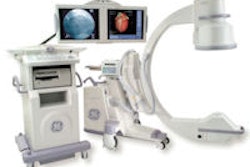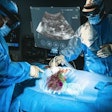Children may be more sensitive to radiation received from medical imaging scans than adults, according to the U.S. Food and Drug Administration's (FDA) Center for Devices and Radiological Health (CDRH).
And because children have more rapidly dividing cells that can be exposed to low-level radiation, and a longer expected lifetime during which radiation exposure can develop into cancer, it's important to use the lowest radiation dose necessary during an imaging exam, the FDA said.
The agency is collaborating with Image Gently, a national initiative of the Alliance for Radiation Safety in Pediatric Imaging that includes the Society for Pediatric Radiology, the American College of Radiology, the American Society of Radiologic Technologists, and the American Association of Physicists in Medicine.
Image Gently's first area of focus is computed tomography. The FDA is advising radiology professionals to base CT settings on patient weight or diameter and the particular body part of interest to reduce dose while maintaining diagnostic image quality, in addition to reducing the number of multiple scans with contrast.
Related Reading
House resolution advocates lower pediatric x-ray dose, May 27, 2008
CT experts grapple with rising concerns about radiation dose, May 14, 2008
Study evaluates radiation dose, cancer risk for whole-body PET/CT, May 9, 2008
Researchers recommend alternatives to CT, April 15, 2008
ACC news: CTA dose varies widely, could be lower, April 2, 2008
Copyright © 2008 AuntMinnie.com



















